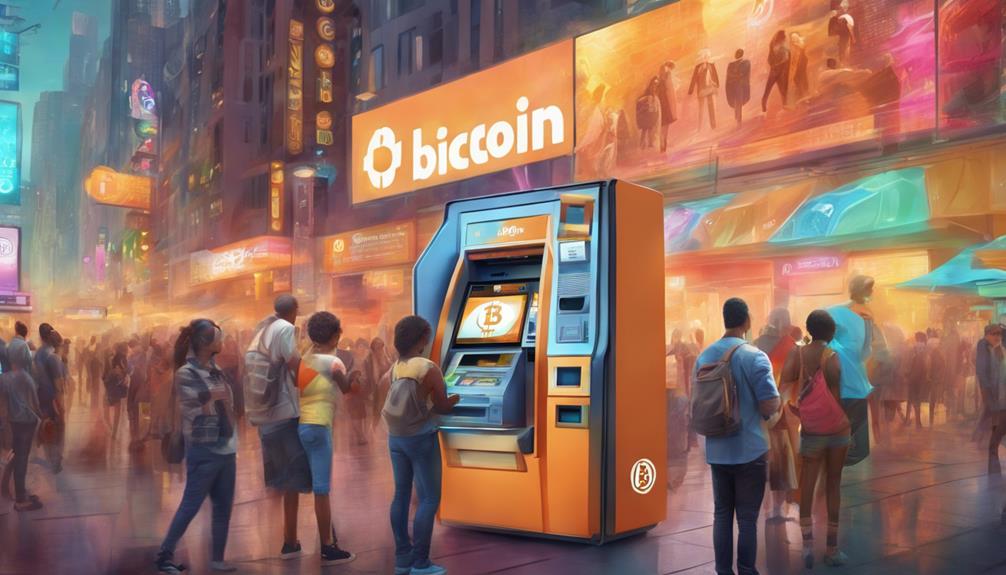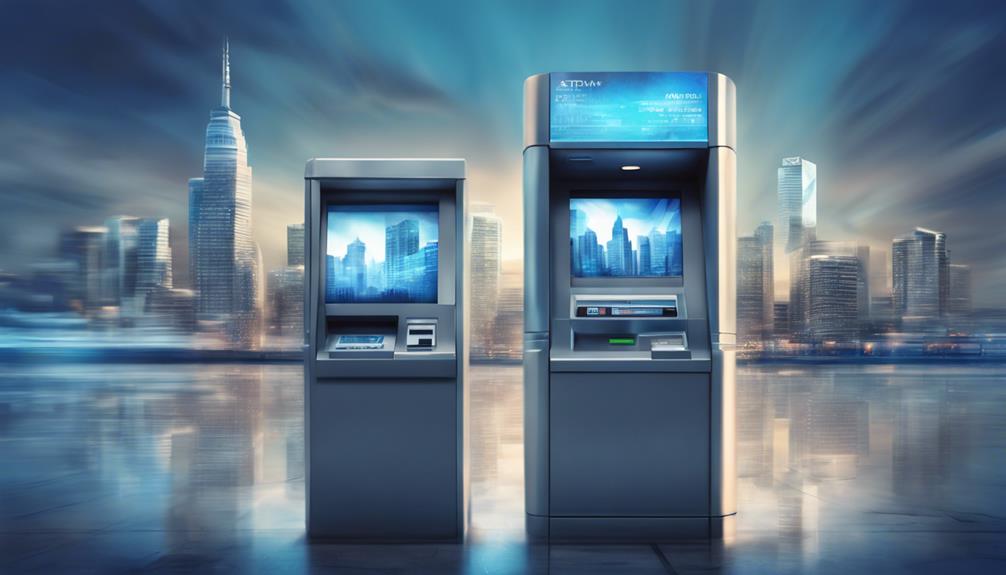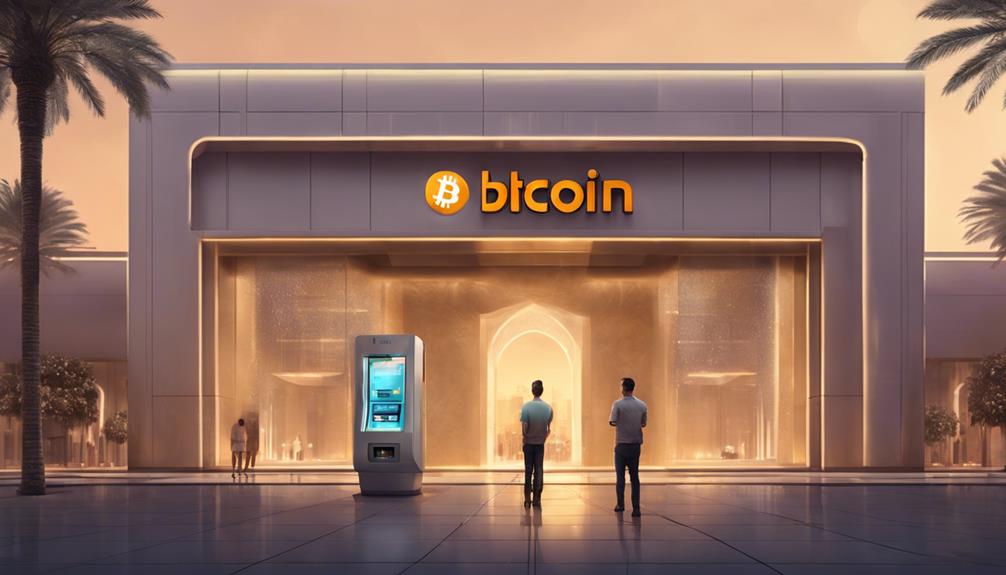Will DeFi Replace Traditional Banking?

As you consider the rising tide of DeFi, or decentralized finance, it's worth pondering whether this innovative, blockchain-based system could one day overshadow traditional banking. You've seen how DeFi offers advantages such as transparency, efficiency, and broader accessibility—features that conventional banks often struggle to match. However, despite its promise, DeFi is not without its own set of challenges, including regulatory hurdles and security concerns. These complexities invite a deeper exploration into whether DeFi can sustain its growth and truly integrate into the global financial ecosystem. What role will DeFi play in your financial future?
Understanding DeFi Technology

While traditional banking relies on centralized institutions, DeFi (Decentralized Finance) technology operates on a blockchain-based platform that enables financial transactions without intermediaries. This means you're not dependent on banks or brokers to manage your money. Instead, you interact directly with smart contracts on a blockchain.
These smart contracts are programmed agreements that execute when certain conditions are met, ensuring your transactions are secure and transparent. You've got the control to manage your assets through services like lending, borrowing, trading, and investing, all without needing a third party.
Moreover, DeFi is built on technology that supports interoperability across different blockchain networks. This versatility allows you to engage in a wide range of financial activities across various platforms without the usual barriers or fees imposed by traditional banks.
Whether you're swapping currencies, earning interest, or securing a loan, DeFi platforms offer these services by leveraging technologies like Ethereum, which provide a robust framework for these transactions.
The decentralized nature of DeFi not only democratizes financial services but also enhances accessibility. Anyone with an internet connection can tap into these services, bypassing the geographical and socio-economic barriers typically found in traditional banking. This inclusivity fosters a truly global financial ecosystem.
Defi Vs Traditional Banking Models
One might wonder how DeFi and traditional banking models stack up against each other. You're looking at two distinct frameworks: one rooted in centuries of structured finance, the other a burgeoning network riding the wave of blockchain innovation.
Traditional banking depends on physical infrastructures like branches and ATMs, which incur high operational costs. DeFi, on the other hand, operates online, slashing those overheads significantly.
You've seen how banks require intermediaries to function, from clearinghouses to auditors. DeFi skips the middlemen, using smart contracts on blockchains to execute transactions. This not only speeds things up but also cuts out fees that you'd typically pay for such services.
While traditional banking is tethered by regulations and often limited to business hours and geography, DeFi is borderless and operates round the clock. However, you should be aware that this freedom also comes with risks. DeFi's current lack of regulation and its reliance on technology that's still in its infancy can expose you to vulnerabilities, including smart contract bugs or volatile crypto market prices.
In essence, while DeFi offers revolutionary possibilities, it also demands a cautious approach, considering its nascent nature and the financial risks involved.
Growth Trends in DeFi Adoption

The rapid evolution of DeFi continues to reshape the landscape of financial services. You've probably noticed how these platforms offer groundbreaking financial tools without traditional intermediaries like banks. This shift isn't just a trend; it's a movement showing exponential growth as more investors, both retail and institutional, jump on board.
In the past year alone, the total value locked (TVL) in DeFi protocols has skyrocketed, illustrating a clear escalation in adoption. You're seeing a surge because DeFi isn't just about trading cryptocurrencies anymore. It's about lending, borrowing, earning interest, and even insurance—all decentralized. This versatility is attracting a wider audience, ensuring that its growth isn't just a bubble but a sturdy expansion.
Moreover, the integration of DeFi with other emerging technologies like blockchain and smart contracts enhances its appeal. You can now execute complex financial transactions securely and transparently, which adds another layer of trust and efficiency.
Regulatory Challenges for DeFi
Navigating regulatory landscapes presents a significant challenge for DeFi, as it disrupts traditional financial systems. You're witnessing a sector that thrives on innovation clash with regulations that often can't keep pace. This gap creates a precarious situation where you're unsure what rules apply or how to comply.
You're also seeing a patchwork of global regulations emerge. Different countries are taking varied approaches – some are strict, potentially stifling innovation, while others adopt a wait-and-see stance. This inconsistency can confuse you if you're operating internationally, complicating your efforts to expand or even maintain operations across borders.
You must also consider the risk of regulatory changes. Today's permissive environment might shift rapidly, introducing new rules that could undermine your current business model. This potential for sudden regulatory shifts makes it challenging for you to plan long-term, invest confidently, and build sustainable growth.
Moreover, the lack of clarity in regulations often leads to increased scrutiny from regulators. You might find yourself dedicating substantial resources to compliance, diverting attention from product development and customer engagement. This focus on navigating the regulatory maze can hinder your ability to innovate and respond to market needs promptly.
DeFi Innovations and Developments

DeFi innovations are reshaping how you interact with financial services, offering groundbreaking alternatives to traditional banking models. Gone are the days of waiting in line at banks or dealing with cumbersome transaction processes. Instead, you're now empowered to manage your finances through blockchain technology, enabling quicker, more efficient transactions.
Imagine lending, borrowing, and trading without intermediaries. That's what DeFi platforms bring to the table. You have access to decentralized exchanges (DEXs) where you can trade directly from your digital wallet, bypassing traditional brokerage and exchange systems. This not only speeds up the process but also reduces the fees you pay.
Moreover, DeFi introduces smart contracts—self-executing contracts with the terms directly written into code. These aren't just a novelty; they're a vital part of automating and securing transactions without human intervention. For instance, you could automatically earn interest on a savings protocol or repay a loan based on pre-set conditions.
Additionally, yield farming has become a buzzword, where you can strategically move your assets across various DeFi platforms to maximize returns. This proactive approach to managing your digital assets can potentially offer higher yields than traditional savings accounts, making your money work harder for you.
Security Concerns in DeFi Systems
While DeFi systems offer significant advancements, they aren't without security risks that you should carefully consider. As you venture into decentralized finance, you're entering a world where traditional safeguards, managed by centralized institutions, don't exist. This absence means you're directly responsible for your digital assets' security.
One major concern is smart contract vulnerabilities. These are the automated agreements that execute transactions within DeFi platforms. If there's a bug in the code, your funds can be exposed to theft or irretrievable loss. It's crucial that you understand the potential for coding errors and their implications.
Another risk comes from the integration of various protocols and platforms. While this interconnectivity can enhance functionality, it also increases the attack surface. Hackers can exploit one weak link in the chain to compromise entire systems. You must be skeptical and perform due diligence before engaging with any DeFi service.
Additionally, many DeFi projects lack regulatory oversight, which can expose you to fraud and scams without recourse. Always verify the credibility of a DeFi platform and be wary of offers that seem too good to be true.
Understanding these risks and approaching DeFi with caution can protect your investments in this innovative, yet vulnerable, financial landscape.
The Future Outlook of DeFi

Despite these security concerns, the potential of decentralized finance continues to grow, shaping what many see as the future of finance. You're witnessing a revolution that isn't just about technology but about rethinking the very fabric of financial interactions. DeFi isn't just surviving; it's poised to thrive, driven by its promise of inclusivity and transparency.
You might wonder how DeFi could sustain growth amidst these challenges. It's adapting through improved protocols and stronger governance structures that enhance security and user trust. Innovators are also weaving in insurance mechanisms directly within DeFi platforms, aiming to shield you from potential losses due to hacks or failures.
Looking ahead, you should expect DeFi to integrate more deeply with traditional finance. This isn't about replacement; it's about augmentation. Imagine streamlined processes where DeFi solutions enhance the efficiency of conventional banking services, making them faster and potentially cheaper.
Moreover, as regulations evolve, DeFi is likely to gain clearer frameworks for operation, which could entice more mainstream users and institutions.
You're at the brink of a new era in finance. The road ahead is challenging but the potential for transformative change makes it an exciting journey to watch—and possibly join.
Conclusion
As you explore the evolving landscape of DeFi, remember it's not just about replacing traditional banking but enhancing it. DeFi offers transparency, efficiency, and accessibility that are hard to match. Despite facing regulatory hurdles and security concerns, DeFi's innovation and adoption trends suggest a promising future. So, keep an eye on how it develops; it might just reshape how you manage your finances, offering more control and opportunities than ever before.





